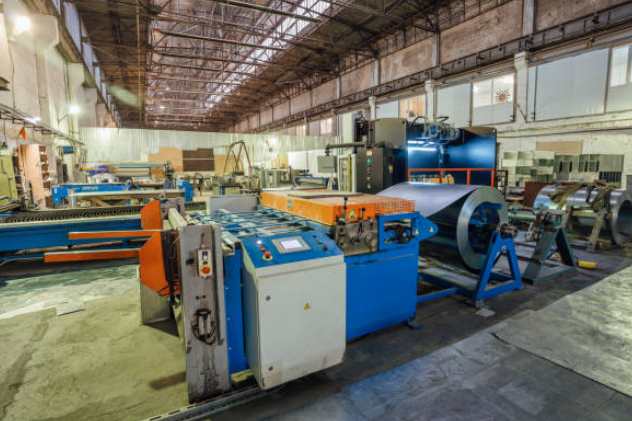
Posted on Tuesday, October 15, 2024
Roll forming technology is set to play a significant role in shaping various industries in Ireland over the coming years. As manufacturers seek greater efficiency, sustainability, and adaptability in their processes, several key trends are emerging in roll forming technology that promise to revolutionize production. Here are some of the major trends to watch:
Automation is transforming manufacturing processes worldwide, and roll forming is no exception. In Ireland, manufacturers are investing in automated roll forming machines that enhance production speed and reduce labor costs. Automated systems can perform complex tasks with high precision, minimizing the risk of errors and improving overall product quality. The integration of robotics in roll forming lines allows for seamless material handling, which further streamlines operations.
The rise of Industry 4.0 is influencing the roll forming sector, with the adoption of smart manufacturing technologies. IoT (Internet of Things) devices enable real-time monitoring and control of roll forming processes, allowing manufacturers to gather data on machine performance, material usage, and production efficiency. This data-driven approach facilitates predictive maintenance, reducing downtime and enhancing operational reliability. In Ireland, companies embracing digitalization can improve competitiveness and adapt more quickly to changing market demands.
Innovations in materials are poised to impact the roll forming industry significantly. As the demand for lightweight yet durable materials increases, manufacturers are exploring the use of advanced high-strength steels (AHSS) and aluminum alloys in roll forming applications. These materials offer enhanced performance characteristics, making them suitable for a wide range of industries, including automotive, construction, and renewable energy. In Ireland, the shift toward sustainable materials aligns with the country’s commitment to environmental responsibility and can open new markets for roll forming manufacturers.
Sustainability is a growing concern across all industries, and roll forming is no exception. Manufacturers in Ireland are increasingly focused on reducing waste and energy consumption in their processes. The ability to produce complex shapes and profiles with minimal scrap material enhances the sustainability of roll forming operations. Additionally, the trend toward using recycled materials in roll forming applications supports the circular economy, further solidifying the industry's commitment to environmental stewardship.
As markets become more competitive, the demand for customized products is rising. Roll forming technology allows for a high degree of customization in profile shapes and dimensions, enabling manufacturers to meet specific customer needs quickly. The development of modular roll forming systems provides greater flexibility, allowing manufacturers to switch between different profiles with minimal downtime. This adaptability is particularly valuable in sectors such as construction and automotive, where project requirements can change rapidly.
To fully leverage the advancements in roll forming technology, there is a growing emphasis on training and skill development for the workforce in Ireland. Companies are recognizing the importance of upskilling employees to operate advanced roll forming equipment and embrace new technologies. Collaborations with educational institutions can foster a skilled workforce capable of driving innovation in the roll forming sector.
The future of roll forming technology in Ireland is bright, with trends such as automation, digitalization, material innovations, sustainability practices, customization, and enhanced training shaping the landscape. As manufacturers adopt these trends, they will be better positioned to meet the evolving demands of their industries, improve efficiency, and contribute to a more sustainable future. Companies that embrace these changes will not only enhance their competitive edge but also play a pivotal role in driving the growth of the Irish manufacturing sector.

Used Purlin Roll Forming Machines for Sale Worldwide
Posted on Sunday, January 25, 2026
Pre-Owned Roll Forming Machines for Purlin & Structural Steel Profiles

Used Roof Panel Roll Forming Machines for Sale Worldwide
Posted on Sunday, January 25, 2026
Pre-Owned Roll Forming Machines for Roofing Panel Production

Used Roll Forming Machines for Sale Worldwide
Posted on Tuesday, January 20, 2026
Pre-Owned Roll Forming Machines with Inspection, Verification & Global Support

Steel Coil Supply for Roll Forming Machines Worldwide
Posted on Tuesday, January 20, 2026
Reliable Steel Coil Supply for Roll Forming, Fabrication & Manufacturing Applications
Copyright 2026 © Machine Matcher.